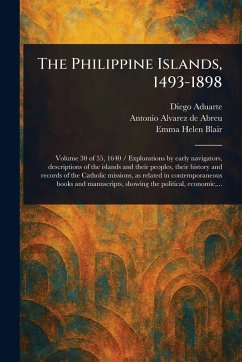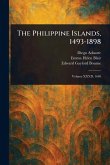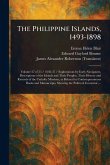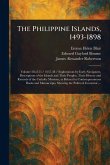Delve into the rich tapestry of the 17th-century Philippines with Volume 30 of "The Philippine Islands, 1493-1898." Authored by Antonio Alvarez de Abreu and Diego Aduarte, this historical account offers a detailed exploration of the Spanish colonization period. Discover firsthand descriptions of the islands, their peoples, and the profound influence of Catholic missions during this transformative era. This volume sheds light on the demarcation line of Alexander VI and its impact on the region. Drawing from contemporaneous books and manuscripts, this volume meticulously chronicles the political, economic, commercial, and religious conditions that shaped the Philippines. Explore the early navigators' expeditions and gain insights into the enduring legacy of European influence in Southeast Asia. A valuable resource for understanding the complex history of the Philippines and the impact of colonial expansion. This work has been selected by scholars as being culturally important, and is part of the knowledge base of civilization as we know it. This work is in the public domain in the United States of America, and possibly other nations. Within the United States, you may freely copy and distribute this work, as no entity (individual or corporate) has a copyright on the body of the work. Scholars believe, and we concur, that this work is important enough to be preserved, reproduced, and made generally available to the public. We appreciate your support of the preservation process, and thank you for being an important part of keeping this knowledge alive and relevant.
Bitte wählen Sie Ihr Anliegen aus.
Rechnungen
Retourenschein anfordern
Bestellstatus
Storno









